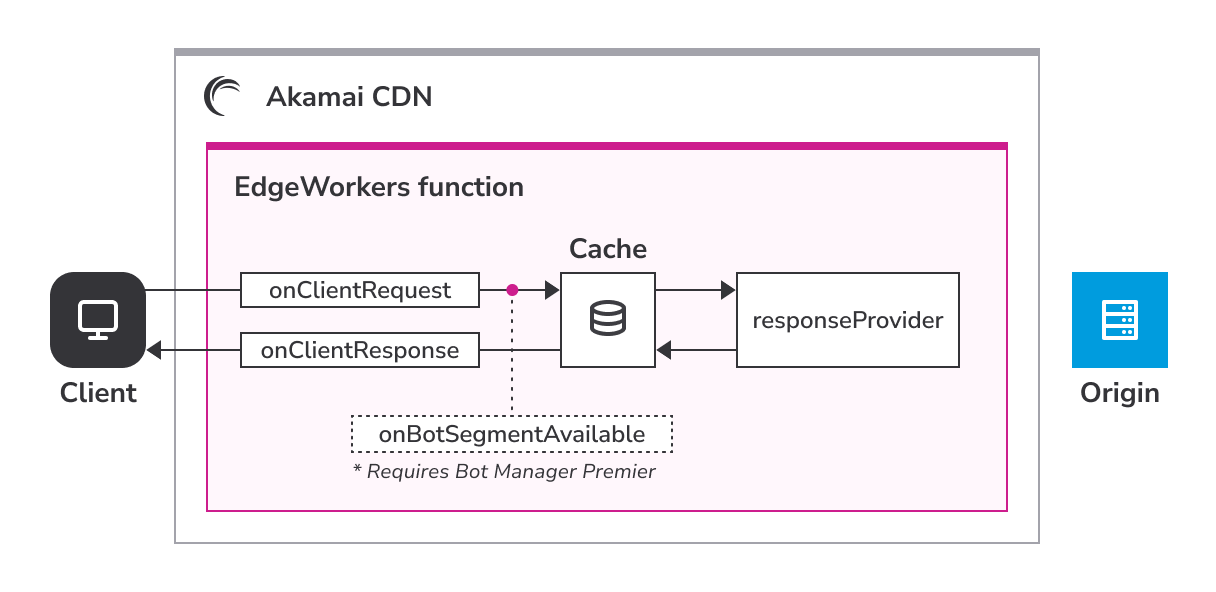Response orchestration
Response Orchestration, also known as Dynamic Content Assembly, is the ability to create on-the-fly response data and content.
You can use Response Orchestration to dynamically create tailored, personalized data or web content for a specific set of users or devices. You can also source data and content from multiple server-side APIs or content origins. Response Orchestration supports conditions when combining multiple data sets or HTML fragments.
EdgeWorkers provides two mechanisms for returning response objects to the client from the edge:
- the
responseProviderevent handler. - the
respondWith()JavaScript method available from the Request Object.
responseProvider
Use the responseProvider event handler to generate and manipulate response bodies within an EdgeWorkers function. When building your Edge solutions, you can fetch resources from other external origins and add them directly or indirectly into the main response body. With responseProvider you can make Edge decisions, build content, and optionally cache response output.
The
responseProviderevent handler sends uncompressed responses.
The diagram below illustrates how the responseProvider function generates a response, acting as a surrogate origin.
If the responseProvider event fails, for example as a result of an error, the request is forwarded to the origin.
respondWith
The respondWith JavaScript method, implemented by the Request Object, provides similar functionality to the construct-response behavior in metadata. It constructs a response for the given request, terminating the request flow by, for example, skipping downstream stages. For onClientRequest, this response will be used instead of fetching a response from cache or origin. Any changes configured for Response Object will be bypassed for all relevant event handlers when you use respondWith. The respondWith method is available from onClientRequest, onClientResponse, onOriginRequest, and onOriginResponse event handlers. Whereas, the JavaScript module create-response is available only from responseProvider.
The respondWith event is typically used to prevent a request from going to origin, and to return a response, such as a redirect, from the edge.
Get started with a code sample
To help you learn more about how to use the responseProvider event handler, we've added code samples to the EdgeWorkers GitHub Repository.
Response Orchestration example
In this Response manipulation example we use an EdgeWorkers function to modify an HTML response stream by adding content to the response. The script adds the content to the page just before the closing head tag.
You can modify this example to support the addition of various types of scripts to other sections of the HTML. You can also use HTTP sub-request functionality to dynamically add content to the page.
API Orchestration example
This API Orchestration example demonstrates how to use an EdgeWorkers function to merge multiple internal APIs into a single API response that is delivered to the user.
HTTP sub-requests made from EdgeWorkers functions provide numerous possibilities to generate API responses.
Updated 3 months ago
